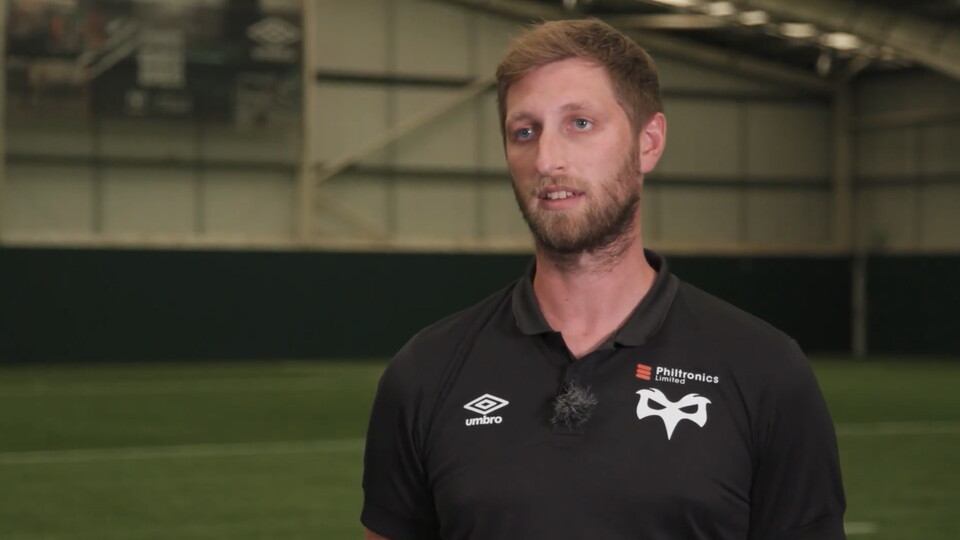Consistency was a key theme when we spoke to our Head Performance Analyst, Aled Griffiths, on how the data is managed on our tour of South Africa.
As the boys get set to face the Vodacom Bulls this weekend, there are many challenges that they face that you might not necessarily consider. One of these is the way they are able to analyse games.
Aled: A big part of what we do when we’re here is to replicate the work that we do back home with the players. It’s a difficult task in itself, you don’t have the same hardware as at home. Yes, you have some that the boys can use but it’s still difficult to replicate when you don’t have all of your normal resources.
Outside of hardware, it’s important that you’re consistent where you can be. A prime example is in the processes we carry out. These processes include the way we review previous footage and preview footage for our upcoming fixtures.
In preview we’re able to analyse particular traits any teams might have, exactly the same as we do back home. We've also got an online platform that we all use, everything gets uploaded there whether it be here or back home.
One of the main issues we face in South Africa are around Wi-Fi constraints but that’s one that’s out of our control. Another one is the power but that just comes down to planned charging for equipment and is an easy one to avoid with advance planning.
The other thing which is slightly different over here is what you get in the box on Match Day so previously we've been scratching around for feeds for coaches during the games, but now it's much better, much more aligned, to allow us to our job.
A lot of that comes down to the work the URC have done. Wherever we are, in whatever country we are, they made massive step forward in that aspect. So again, the consistency of what we do back home is exactly the same. It's replicated here as well.
The one benefit that we've gotten here is you do have a lot more corridor conversations with people and players. So you get the ability to maybe just talk with players those extra couple of minutes and present the players with more messages than you normally would. That ultimately allows you to build on the culture of the team and also allows you to build relationships within the team, which is invaluable really for moving forwards.
I know it’s a covid word now but when we’re in South Africa, we move in a bubble. We train together. We have dinner together. We're all staying in the same facility. It makes communication more efficient.
Now you can grab a player quickly while something you’ve seen in training is fresh in your mind whereas if at home that might not happen. To be in this closed environment is massively beneficial for learning and for how we get our numbers and research across to the players.
On Sunday for example, when we get back from Pretoria, we’ll be able to speak to the players in person and accelerate the learning process. Back home it would have to be a phone call or wait till we see the players in person on Monday to talk through footage.
The most important thing is the consistency in what we measure, how we measure it, and how we’re able to improve from the data that we have been collected. Consistency is key.
